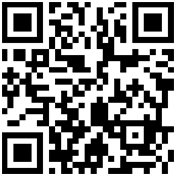BRIAN SANTO: This Saturday, July 20th, will be the 50th anniversary of the first step taken on the moon. We’ve got a set of stories on the website to commemorate the event, including a series we did to mark the 40th anniversary, along with several brand new articles, including a few by George Leopold, who is not only a long-time EE Times editor, but is also an authority on the NASA space program. George has authored a book on one of America’s great astronauts, Gus Grissom, who participated in the Apollo, Gemini, and Mercury programs. Welcome back to the podcast, George.
BRIAN SANTO: 7月20日,即本周六,是人类登月并在月球迈出第一步的50周年纪念日。我们在网站上发布了系列文章来纪念这一盛事,有40周年纪念日时我们所做的系列文章,和包括George Leopold稿件在内的一些新文章。George不仅是EE Times的长期编辑,还是NASA太空项目的权威。George写了一本关于美国伟大宇航员格斯·格里索姆(Gus Grissom)的书,格斯参加了阿波罗(Apollo)计划、双子座(Gemini)计划和水星(Mercury)计划。George,欢迎回到播客。
GEORGE LEOPOLD: Hey, Brian, good to be back with you.
GEORGE LEOPOLD: 嗨Brian,很高兴和你对话。
BRIAN SANTO: I have a really clear memory from 50 years ago. My mom and dad getting me out of bed and dragging me downstairs to watch Neil Armstrong walk on the moon. As sleepy as I was, it was incredibly exciting. And I think every kid alive in the 1960s considered becoming an astronaut. How about you? What are your memories from back then?
BRIAN SANTO: 我对50年前发生的事还有着非常清晰的记忆。当时我的父母把我从床上抱起来,把我拖下楼观看尼尔·阿姆斯特朗(Neil Armstrong)在月球漫步。尽管当时我很困了,但在电视上看到的画面极其令人兴奋。我认为20世纪60年代的每个孩子都曾考虑过要成为宇航员。你呢?你对那时候的记忆是什么?
GEORGE LEOPOLD: Well, like a lot of folks my age, my generation, we sort of remember that night as magical. It was... the night of July 20th was like Christmas Eve. Two guys coming... fuzzy figures coming down that ladder. It was unforgettable. I guess even at a young age, you sort of sensed that this was something historic, something that perhaps for the first time in a long time sort of pulled the whole planet together. And we did it; it wasn't just the Americans, but we all did it. So it was a very magical thing, and a bit ephemeral but nevertheless I think it was significant. And maybe those images alone made that $180 billion in 2019 dollars worth the effort.
GEORGE LEOPOLD: 嗯,像我这一代的,跟我年纪相仿的很多人一样,我们或多或少都记得那个神奇的夜晚。是在7月20日的晚上,感觉就像是圣诞夜。电视里透过模糊的画面,可以看到两个人从登月舱的梯子上下来。那个画面令人难忘。我认为即使你那个时候年纪还很小,但也能感觉到这是一个历史性的时刻,可能是在很长一段时间以来,第一次将整个世界的目光都聚焦在一起的时刻。我们做到了;不仅仅是美国人,我们全人类都做到了。所以这是一个非常神奇的事情,虽然有点短暂,但我认为非常有意义。也许仅仅是今天所看到的这些图像,就值得花费1800亿美元。
BRIAN SANTO: Ten years ago, EE Times ran a special report, looking back on Apollo 11 on the 40th anniversary. Now we’ve re-posted that on the website by the way – on EETimes.com. You contributed to that report, and you were already pretty prepared for it, right?
BRIAN SANTO: 十年前,EE Times发表了一篇特别报道,回顾了阿波罗11号40周年纪念日。今年我们在EETimes.com.网站上重发了篇报道。你为那篇报道做了贡献,你当时做了充分的准备对吧?
GEORGE LEOPOLD: Yeah, 10 years ago we did a special report, the 40th anniversary of Apollo 11. One of the people we interviewed, Allen Bean, said the reason everybody showed up for the 40th anniversary was that he checked the actuarial tables and realized that a lot of these guys wouldn't be here for the 50th. And unfortunately, he was right. There are only a few of the people who walked on the moon or saw the whole circle of the Earth alive today. So, luckily, too, the Apollo 11 astronauts-- the crew of the first moon landing-- are here. Mike Collins and Buzz Aldrin
We're profiling the great Mike Collins in EETimes this week. He's one of my favorites. His conclusion was that, What did this all mean? It was about leaving. It was about leaving the Earth for the first time and looking back and seeing the whole Earth and realizing what we have down here. So I think it changed everybody's perspective. And of course the famous "Earthrise" photograph and so forth. It changed our whole view of where we fit in the universe. So again, that alone probably made the whole thing worth it.
GEORGE LEOPOLD:是的,10年前在阿波罗11号40周年纪念时,我们做了一个特别报道。我们采访的一位名叫艾伦·比恩(Allen Bean)的人说,每个人都出席了40周年纪念活动的原因是他检查了人寿精算表,意识到因为年龄问题,可能在50周年纪念时很多人都无法出席活动了。不幸的是,他说得很对。今年只有极少数完成了月球行走或曾看过地球全貌的人还健在。所以幸运的是,阿波罗11号的宇航员——第一次登月的队员——迈克·柯林斯(Mike Collins)和巴兹·奥尔德林(Buzz Aldrin)还健在。
我们将在本周的EE Times上介绍伟大的迈克·柯林斯。他是我最喜欢的人之一。他的结论是——这一切意味着什么?这是关于离开,关于第一次离开地球,回望身后,看到整个地球,认识我们在这里所做的一切。我认为这改变了大家的视角。当然还有著名的“Earthrise”照片等。它改变了我们对地球在宇宙中所处位置的看法。所以,单这一点就可能让整个项目都很有意义。
BRIAN SANTO: So what’s changed in the 10 years since then?
BRIAN SANTO: 在那之后的10年里发生了什么变化?
GEORGE LEOPOLD: Well, I guess, you know, in the last 10 years since we took a look at this, the 40th anniversary to the 50th anniversary of Apollo 11, we've seen the whole commercial space industry grow up. If we're going to get back to the moon, it's probably going to be an industry-NASA effort, with the industry guys supplying most of the hardware and NASA sort of looking over their shoulder and making sure the software works and getting everything right. Because everything has got to be right. This is a dangerous, high-risk business. Space is unforgiving.
At some point, Elon Musk or Jeff Bezos or one of these guys is going to have an accident. Someone's going to get killed, and then we'll find out how resilient their business model is. But that's just the nature of space travel.
GEORGE LEOPOLD:
让我们回顾过去的10年,从阿波罗11号40周年到50周年,我们看到了整个商业航天工业的成长。如果我们要重回月球——这也是NASA一直在努力的方向——这可能会发展一类工业,从业人员提供大部分的硬件,而NASA则监管这些工业,确保软件正常工作,保障一切运行正常。因为一切都必须确保万无一失。这是一项极危险、高风险的业务。太空可不会原谅你的失误。
从某种程度上来讲,埃隆·马斯克(Elon Musk)或杰夫·贝索斯(Jeff Bezos),或是这些做商业航天的人中某一个也许会发生事故。也许有人会因此丧命,然后我们才能发现他们的商业模式适应性如何。但这其实是太空旅行的本质。
BRIAN SANTO: If we might be going back to the moon, I have to bring this up, because it’s new information to me. I always knew that without an atmosphere for protection, radiation would be a serious problem. And recently we discovered on the plus side, there might be ice to mine on the moon, a source of oxygen to breathe and hydrogen for fuel. But what I just learned is that moondust is incredibly vicious, harsh stuff. It’s way tougher to go back to the moon than I ever realized. Way many more challenges. Is this any more involved an effort than, say, going to Mars or asteroid mining?
BRIAN SANTO: 如果我们要重登月球,我必须把这个信息提出来,因为这对我来说是新消息。我一直知道,如果没有保护大气,辐射将是一个严重的问题。最近我们发现月球上可能有冰矿,可以作为能源提供可吸氧气和可燃氢燃料。但我刚了解到,月尘是极其凶险、恶劣的物质。重登月球比我想象中要困难得多。同时还面临很多其他挑战。这是否比去火星或小行星采矿更值得投入精力?
GEORGE LEOPOLD: Yeah, if we go back to the moon, half the problem is finding a way to get back. Right now we don't have a way to get back, but they're talking a lot about it. But we'll see if any of that pans out. But one of the big problems, as you point out, is yeah, the dust is a major problem. It sticks to everything, it's highly abrasive material, it gets into everything. I think on the first lunar landing they were getting moondust in the connections between their suits and their gloves, and it became a big problem. So you have to find a way to manage that before we can go back there and do whatever we're going to do on the moon in terms of getting at the water that you could use as fuel to go to Mars or out to an asteroid, something like that.
I asked the writer Homer Hickham, who maybe some of the listeners knows from "October Sky" about the asteroid mining. He was of course a miner's son in West Virginia, and he said he looked at the board of directors of some of these companies, startups, that are proposing asteroid mining, and he said they didn't have any miners on their board of directors. So they need to focus in on the details here to get it right.
GEORGE LEOPOLD: 是的,如果我们要重登月球,有一半的问题是需要找到一种登陆方法。他们讨论了很多,但现在我们没有办法回去。我们会验证这些讨论中有没有能成功的方法。正如你指出的,重登月球计划中有一个大问题——月尘。它是一种高研磨性的材料,能黏附在所有的物体上,可以渗透进所有物质。我想在第一次登月时,宇航员们的衣服和手套之间的连接处沾上了月尘,这成了一个大问题。所以不论我们计划在月球上完成什么事,都必须先找到一种方法来处理这个问题,然后我们才能重登月球。诸如取得可以作为燃料的水,用于去往火星或小行星,诸如此类的任务。
我问过作家霍默·希克姆(Homer Hickham),节目的听众可能通过《十月的天空》(“October Sky”)听说过他,了解到关于小行星采矿的。霍默是西弗吉尼亚州的一名矿工的儿子,他说他看了一些公司的董事会,这些公司是初创公司,正在提议小行星采矿,他说这些公司的董事会上没有任何矿工。所以这些公司需要专注于细节才能不走弯路。
BRIAN SANTO: Okay, last question: Are you doing anything to celebrate on July 20th?
BRIAN SANTO: 好的,最后一个问题:7月20日你有什么庆祝活动吗?
GEORGE LEOPOLD: Well, on July 20th I will be at Purdue University, the alma mater of the subject of my biography, Gus Grissom, as well of course as the alma mater of the first man on the moon, Neil Armstrong. The engineering building at Purdue University is named for Neil Armstrong. There's a statue of his out in front. They're obviously, and rightly so, quite proud of him, and also the last man on the moon, Gene Cernan, is also a moonwalker and a Purdue graduate. So I think Purdue has more astronauts than any other... has produced more astronauts than any other university. So they're quite proud of their tradition. And as they say at Purdue, "boiler up."
GEORGE LEOPOLD: 7月20日,我将在普渡大学,我的自传中的母校,也是格斯·格里森,当然了,还有第一个登上月球的人——尼尔·阿姆斯特朗的母校。普渡大学的工程大楼是以尼尔·阿姆斯特朗命名的,大楼前面还有一尊他的雕像。很明显,学校以他为豪。最后一个登月的人,吉恩·塞南,一位月球漫步者,也是普渡大学的毕业生。所以我认为普渡大学拥有的宇航员数量比其他地方都多…培育的宇航员比任何其他大学都多。因此普渡大学也为其传统感到骄傲。正如他们在普渡大学所说,“点火吧。”
BRIAN SANTO: Okay. That was George Leopold, EE Times editor and author of the book, “Calculated Risk: The Supersonic Life and Times of Gus Grissom.” It’s a great read. Available wherever fine books are sold.
BRIAN SANTO: 好的。这是George Leopold,EE Times的编辑,也是《Calculated Risk: The Supersonic Life and Times of Gus Grissom.》这本书的作者。这是一本很棒的书,在任何出售精装书籍的地方都可以买到。



